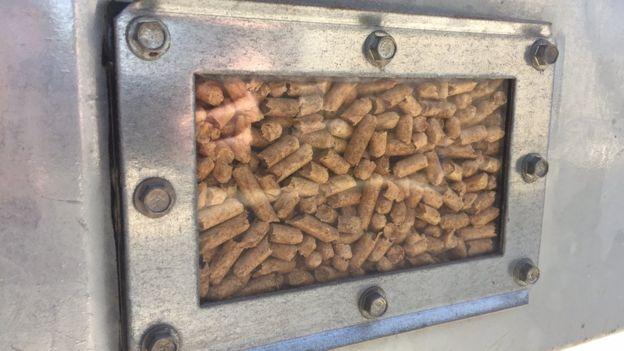RHI Inquest: Civil servants 'furious' costs set to double
- Published
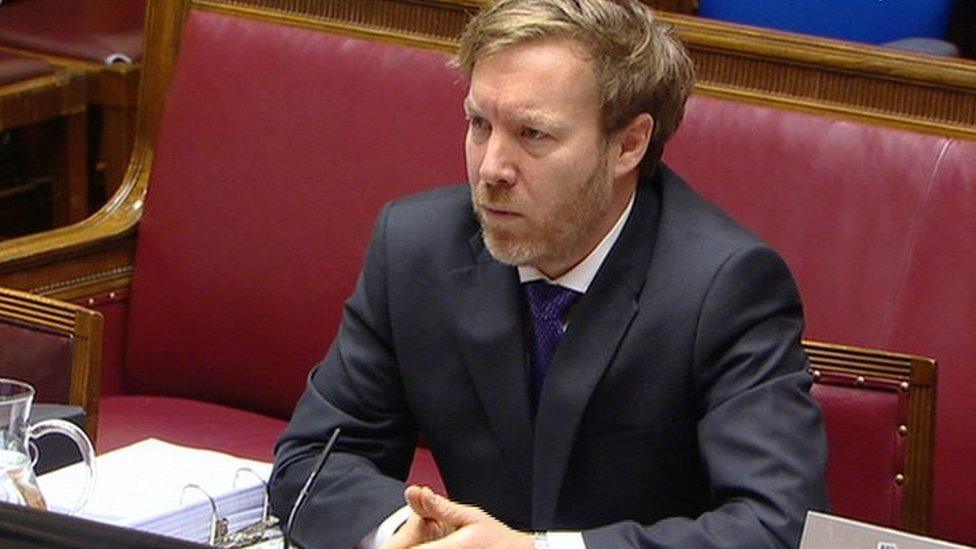
Matthew Harnack, from OFGEM, told the inquiry he was surprised at a civil servant's reaction that costs be cut
Civil servants were "furious" when they found out the development costs for the Renewable Heating Incentive (RHI) scheme looked set to double, an inquiry has heard.
In response, the development team "sharpened up" estimates, cutting them by several hundred thousand pounds.
The inquiry heard that E-serve, a subsidiary of the Office of Gas and Electricity Markets (OFGEM), had worked up the costs.
But the fuel cost far less than the subsidy users were receiving, meaning they could earn by burning more fuel.
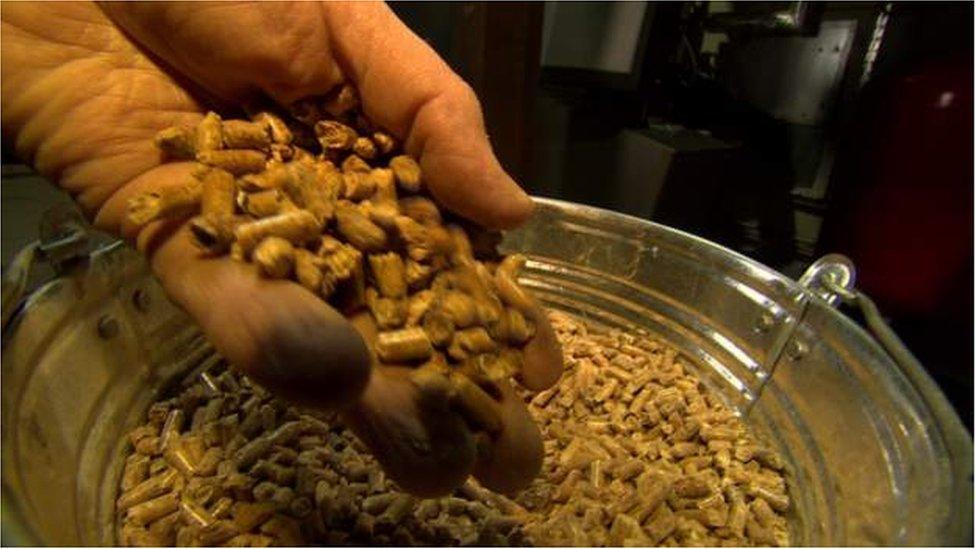
Wood pellets were used as renewable fuel
'100% contingency'
On Wednesday, the inquiry heard that E-serve told the Department of Enterprise, Trade and Investment (DETI) that the bill would be £386,000.
But they included an additional 100% "contingency", because of uncertainty around parts of the project.
That effectively meant the bill for development could double.
When a senior official in DETI discovered the cost could be up to £700,000, she was "furious", the inquiry heard.

Flaws in setting the RHI scheme's subsidy rate left it open to abuse as claimants could earn more cash the more fuel they burned
Fiona Hepper, Head of the Energy Division in DETI, demanded that costs be cut.
Inquiry counsel David Scoffield QC suggested there had then been a "furious attempt on behalf of OFGEM to cut everything right back to the very bone so they could deliver it for the absolute minimum, and placate the concerns that had been raised by DETI".
He asked whether OFGEM had cut "too far and too deep".
A witness, Matthew Harnack, a senior manager in OFGEM, said he was surprised at Mrs Hepper's reaction.
He believed it was due to a misunderstanding at DETI who did not appreciate that the development costs figure was a range, and that £386,000 was the bottom of it.
Not a 'good look'
Mr Harnack said he understood that DETI had secured funding for £386,000 of development costs and that asking for more would not be a "good look" for them.
He added that he was told it would be next to impossible to get additional funding.
He said he was told the department had managed to get approval to avoid a procurement process and avoid giving the work to a local company solely because of the "value for money that our £386,000 solution provided".
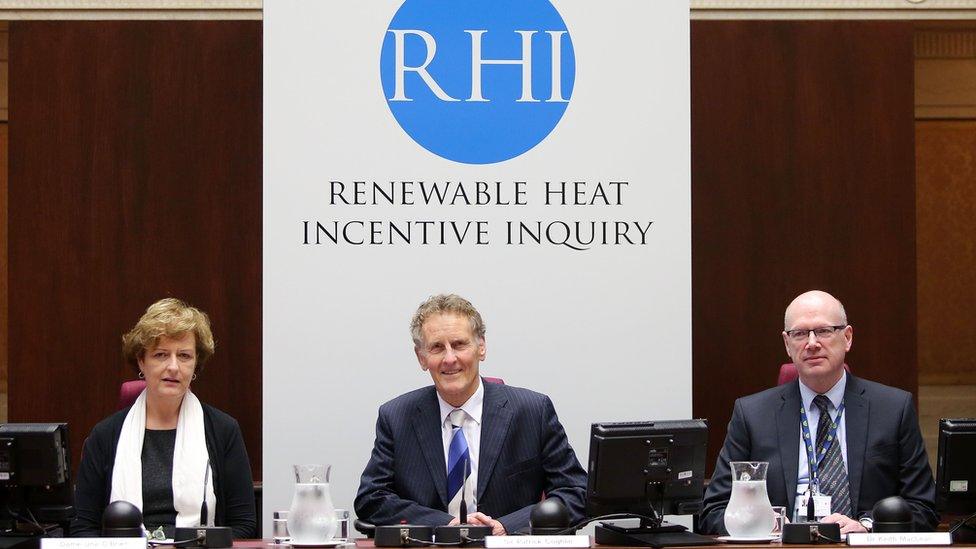
The RHI Inquiry panel is made of up of Sir Patrick Coghlin (centre), Dame Una O'Brien and Dr Keith MacLean
After a recalculation of the costs, the development of the Northern Ireland RHI came to £433,000.
Mr Harnack later apologised to Fiona Hepper for the confusion.
'Cost controls never introduced'
Earlier, the inquiry heard that officials who ran the scheme had been given reassurances that cost controls would be introduced.
However, despite a commitment being made several times to introduce checks - replicating those in a similar scheme in Great Britain - they were never brought in.
Mr Harnack told the inquiry that in June 2012, months before the launch, OFGEM had flagged weaknesses in the RHI regulations in Great Britain.
Its lawyers urged DETI to wait until the Great Britain regulations were amended so those changes could be incorporated into the Northern Ireland rules.
But DETI told OFGEM they wanted to launch and amend their regulations as they went along.
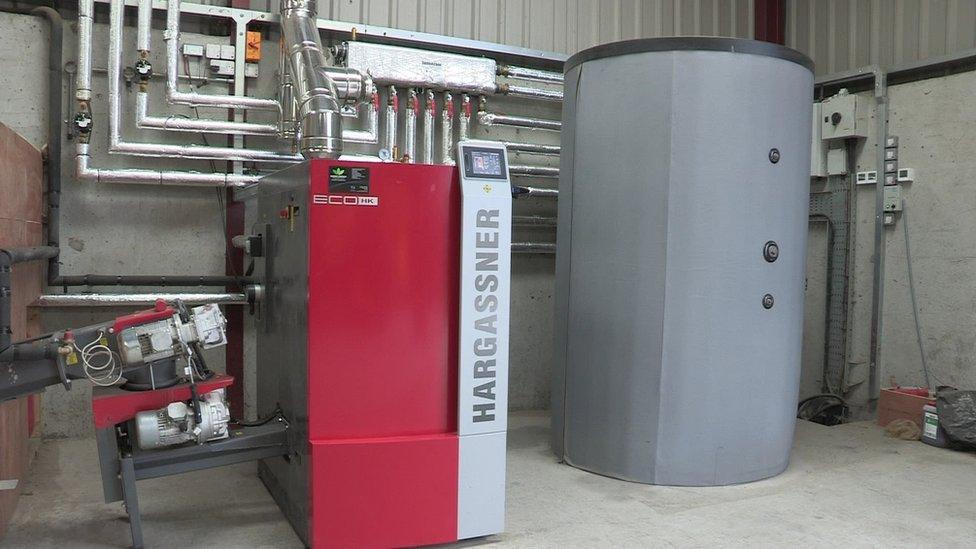
A biomass boiler, similar to those owned by some RHI scheme claimants
'I honestly don't know'
Mr Harnack said they had taken comfort from the assurances they were given on the introduction of cost controls.
"So once that decision was made by DETI and/or their minister and conveyed to us, that they had made up their minds, well that's that then," he said.
"Most likely we would have had to consider whether that would be acceptable for us to still proceed and consider what are the risks involved in doing so."
The risks included the potential for legal challenge and reputational damage from any court action resulting from weaknesses in the regulations.
The inquiry heard that DETI had agreed to cover the cost of any legal proceedings.
Inquiry chair Sir Patrick Coghlin asked why a clear warning from DETI's legal adviser that OFGEM should not run the Northern Ireland RHI unless it was amended, had not been included in OFGEM internal documents.
"I honestly don't know," Mr Harnack said.
- Published25 January 2018
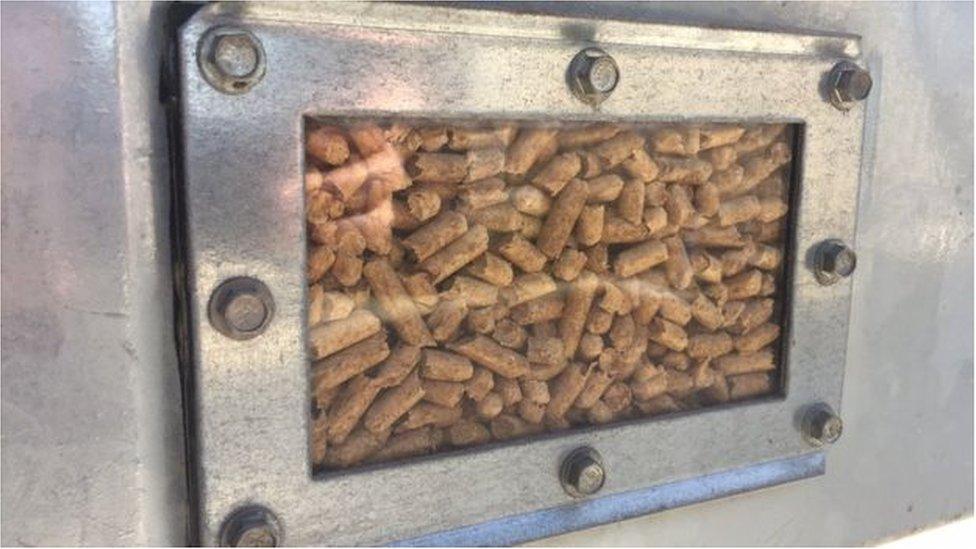
- Published24 January 2018
